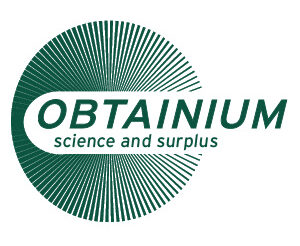In recent developments, Russia has instituted temporary restrictions on the export of enriched uranium to the United States, a move that has raised alarms among American utilities dependent on nuclear power, which accounts for nearly 20% of electricity generation in the country. This pivotal moment highlights not only the fragility of U.S. energy security but also the significant role that foreign suppliers play in the nation’s nuclear fuel supply chain. In this article, we delve into the implications of Russia’s export curtailment, explore the challenges this poses to U.S. nuclear power generation, and discuss strategic measures that could be taken to mitigate dependency on Russian uranium.
Key Takeaways
- Russia’s export restrictions on enriched uranium pose a significant threat to the U.S. nuclear power industry’s supply chain.
- The reliance on Russian uranium highlights the vulnerabilities in U.S. energy security and the need for a diversified supply strategy.
- Industry experts stress the urgency for coordinated action among Western countries to reduce dependence on Russian uranium supplies.
The Impact of Russia’s Export Restrictions on U.S. Nuclear Supply
The recent decision by Russia to temporarily limit exports of enriched uranium to the United States represents a significant concern for the U.S. nuclear power industry, which generates almost 20% of its electricity from nuclear reactors. This restriction, announced without clear reasons or a timeline, feeds into the complexities of an already delicate geopolitical situation exacerbated by the ongoing conflict in Ukraine. Historically, Russia has used its energy resources as a geopolitical tool, and this latest move highlights a specific vulnerability in the U.S. nuclear fuel supply chain, where nearly half of the world’s capabilities to separate uranium isotopes are under Russian control. In the previous year, Russia accounted for over 25% of the enriched uranium used by U.S. reactors. While most uranium shipments for this year are on track, experts like Jonathan Hinze from UxC warn that any future restrictions could lead to significant disruptions, particularly for reactor operators from 2025 onwards. Additionally, Cameco Corp has raised alarms about the risks associated with the dependency on Russian uranium, calling for a unified response from Western nations to diminish reliance on Russian and other state-affiliated uranium suppliers. The restrictions are seen as a reaction to recent U.S. sanctions tied to the Biden administration’s legislation, which permits continued shipments until 2028 but underscores a troubling shortfall in the U.S. domestic uranium enrichment capacity, as there is currently only one operational enrichment facility in New Mexico—jointly owned by British, Dutch, and German interests. Industry observers criticize the lack of proactive measures from the U.S. government, suggesting that an earlier accumulation of enriched uranium stocks could have softened the impact of such geopolitical tensions.
Strategies for Reducing Dependency on Russian Uranium
To effectively reduce dependency on Russian uranium, U.S. utilities must consider a multi-faceted approach that encompasses diversification of supply sources, investment in domestic enrichment capabilities, and exploration of advanced nuclear technologies. Diversification could involve establishing partnerships with reliable suppliers from countries like Canada or Australia, which have robust uranium mining industries and stable political climates. Concurrently, investing in expanding domestic enrichment infrastructure is crucial; this not only bolsters national security but also mitigates the risks associated with foreign supply disruptions. Developing advanced nuclear technologies, such as small modular reactors (SMRs) and next-generation reactors, can lead to more efficient use of uranium and reduced overall demand. Additionally, fostering international collaborations on nuclear fuel supply chains could create a more resilient global market. By implementing these strategies, the U.S. can enhance its energy security and reduce reliance on Russian uranium in the face of ongoing geopolitical challenges.
About Obtainium Science and Surplus
Obtainium Science and Surplus has been a trusted source of surplus scientific and industrial equipment since 1999. Focusing on reliability and competitive pricing, Obtainium helps professionals and enthusiasts find unique and essential components. Visit Obtainium Science and Surplus to discover more.


